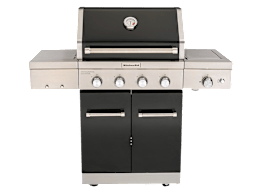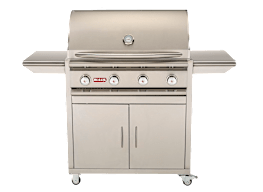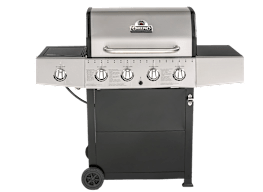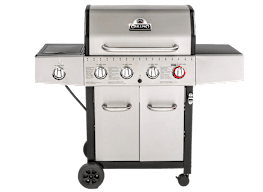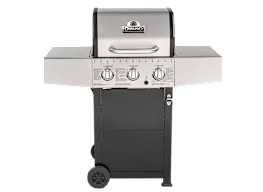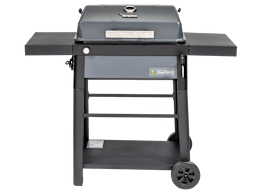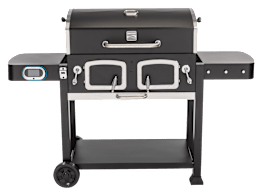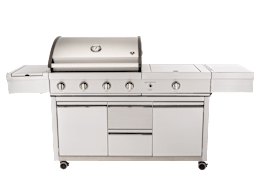How to Maintain Your Gas Grill
What to do before and after each season—and before and after cooking—to keep your grill working at its best
When you shop through retailer links on our site, we may earn affiliate commissions. 100% of the fees we collect are used to support our nonprofit mission. Learn more.
Grills can take a beating. From in-season smoke and grease to off-season snow and ice, not to mention moves across the deck or yard. That’s why our gas grill ratings size up, among many things, how well a new grill is built before you buy it: Our engineers perform a sturdiness test to capture exactly that, while also helping to gauge whether a grill is built to survive multiple seasons.
Gas Grill Maintenance Tips
Unless you’re a year-round griller, chances are that your grill will need a good cleaning before you fire it up for your first cookout of the year. Examine the inside and clear away any spiderwebs, which can cause a serious flare-up if they ignite. Reconnect your propane tank, open the valve, and spritz the flexible gas line with a mixture of water and dish soap. Look for any bubbling, which could indicate a possible leak. If you spot one, order a replacement gas line. Be sure to also test the newly installed line with a soapy water mixture.
Before Each Cookout
Weber, the largest grill manufacturer in the U.S., recommends brushing grates after a 15-minute preheat, because the heated food debris will turn to ash and will be easier to brush off. You’ll also need to empty the drip tray, which collects fat, to avoid a mess and reduce the chances of a grease fire. Any flakes you see forming on the inside top of the lid might look like paint, but they’re actually grease and smoke deposits. Use a stainless steel brush to scrape them off so that they don’t end up in your food.
During the Season
Scrub the inside of your grill, including the covers on the burners on gas grills, with soapy water and a scouring pad from time to time. How often depends upon how frequently you’re grilling and what you’re cooking—if it’s fatty meats, you’ll need to clean more frequently, maybe every third or fourth use—to help prevent flare-ups.
Protect your grill whenever it’s not in use with a cover made of a waterproof material, such as heavy-duty polyester. (Most brands’ covers are designed to fit a particular model.) If you live right on the ocean or in a particularly humid area, however, leave your grill uncovered except during inclement weather, to avoid trapping salty or moist air that would cause the grill to rust. People in these regions should also wipe down grills once a week to remove salt deposits and accumulated moisture.
After the Season
At the end of the season, scrub your grill inside and out with a nonabrasive scouring pad. Use soapy water in the firebox and on the grates, and a multipurpose cleaner on the exterior. Store your grill covered, with the propane tank disconnected. That way, if anyone bumps into the grill in the off-season, there’s no risk of inadvertently turning on a burner. A detached garage or shed is the best place to store propane tanks; never bring them into the house. If you don’t have a shed or garage, you can store them outdoors, away from the house, covered with a tarp.
Three Sturdy Gas Grills That Are Built to Last
5 Signs It May Be Time to Replace Your Grill
Plus, fast fixes you can make to keep it cooking.



















